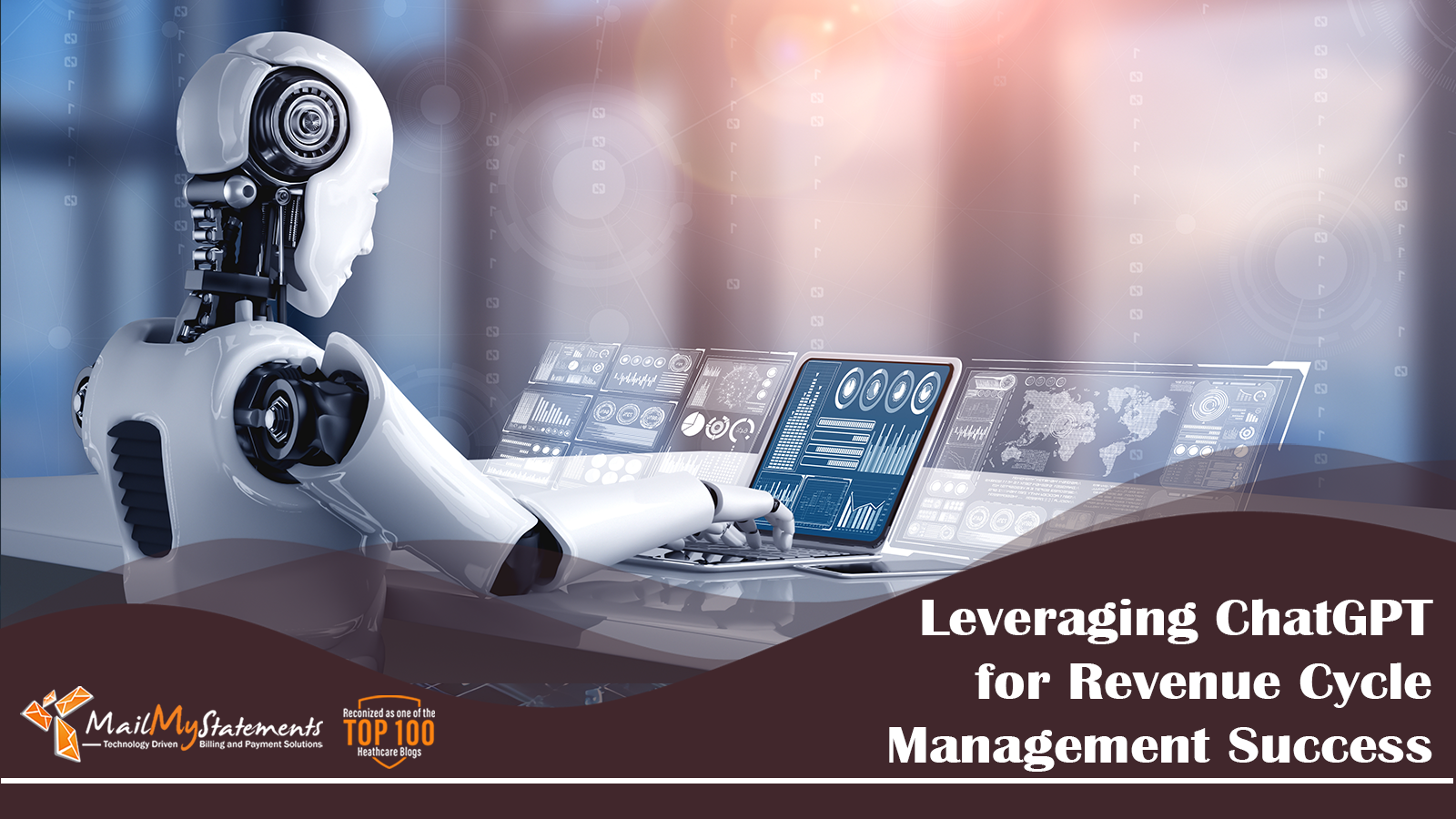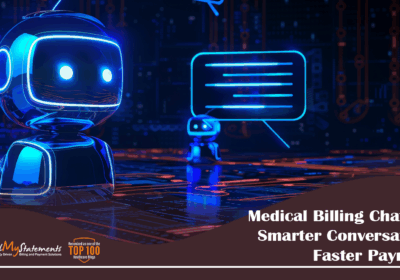Leveraging ChatGPT for Revenue Cycle Management Success

From social media feeds to professional conferences, discussions about AI, particularly large language models like ChatGPT, have permeated our daily lives. These advanced AI tools are reshaping how we access information and complete tasks, including within the complex realm of revenue cycle management (RCM). While ChatGPT has already demonstrated its potential to streamline administrative tasks in RCM, the future holds even more exciting possibilities.
As AI continues to evolve, we can anticipate its integration into a wider range of RCM processes, including claims processing, denial management, and patient engagement. By embracing AI technologies, healthcare organizations can unlock significant operational efficiencies and improve financial performance.
AI and ChatGPT in Revenue Cycle Management
ChatGPT can streamline healthcare revenue cycle management by automating a number of administrative processes, ranging from billing to insurance approvals and collections. There’s also potential to use ChatGPT technology for comprehensive and unified patient management, including scheduling appointments, registration, eligibility verification, coding and billing services, follow-up on unpaid or denied claims, and collection of payments.
Chatbot technology can make the patient experience more efficient by streamlining and automating administrative tasks, freeing up time for human staff to provide higher-level support to patients, which is especially critical in light of billing staff shortages. In addition, ChatGPT’s AI capabilities have already started to be utilized by medical practices to identify coding errors or missed opportunities in billing claims, reducing payment delays and improving reimbursement rates.
Artificial intelligence also helps streamline billing and patient collections. It automates follow-ups on unpaid or denied claims, allowing providers to collect payments from patients without having to manually contact them. It offers automated payment reminders and notifications for overdue accounts, helping reduce the number of unpaid balances.
In addition to carrying out these tasks, ChatGPT has the ability to collect and analyze data relating to the tasks it performs. This has the potential to improve workflows and find ways to make processes even more efficient.
Potential Risks of Relying on ChatGPT
Although ChatGPT can be a powerful tool for streamlining revenue cycle management processes, there are potential risks to relying on this technology.
First and foremost, the accuracy of coding and billing is reliant on the quality of the data entered into ChatGPT; if inaccurate or incomplete information is provided, errors may occur that result in denied claims and payment delays. The goal of rolling out ChatGPT is to reduce your staff’s workload, but such errors only increase the amount of work your team has to do.
In addition, any tools that use ChatGPT in the healthcare setting must comply with state and federal law regarding patient privacy and other protections. This means you can’t simply hop onto the OpenAI website and start using the ChatGPT chatbot — you’ll need to use tools that leverage ChatGPT technology in a secure, compliant way.
These issues should not dissuade providers from using ChatGPT in revenue cycle management processes, but you should be aware of the potential risks and take measures to ensure that data is accurate and secure. Human review remains necessary to ensure that the data entered into ChatGPT, as well as its outputs, are correct.
How You Can Use ChatGPT in Your Practice Today
To be sure, there is a long road ahead before healthcare providers can fully leverage the potential of ChatGPT in revenue cycle management functions. However, there are steps you can take today to start using it in your practice.
Beta site DocsGPT is a free ChatGPT collaborative for doctors and staff that uses ChatGPT to compose insurance letters, patient letters, and other institutional documents and fax correspondence to insurers via Doximity. Even charting and patient education is available through this service.
Doctors also currently use ChatGPT to assist in handling insurance denials, summarizing medical articles to pull key takeaways and carry out other low-level administrative tasks.
The Future of AI in Healthcare Revenue Cycles
ChatGPT is only a first step towards the future of AI-driven revenue cycle management solutions. There are many other powerful technologies that can be used to optimize the patient experience and increase collections, such as natural language processing, machine learning, and predictive analytics. These advances have the potential to improve accuracy in billing and coding processes, streamline collection efforts, and provide real-time insights into performance.
As AI technology continues to evolve and become more sophisticated, providers will be able to better manage their revenue cycle processes with greater efficiency. This will help reduce administrative costs, eliminate payment delays, improve collections, and ultimately increase revenue for healthcare organizations.
Learn More
ChatGPT holds promise as a powerful tool for streamlining revenue cycle processes, as well as tackling other administrative work currently handled by your support team. That said, providers must be aware of its potential risks and take steps to ensure both accuracy and patient privacy.
Get in touch with us today and learn more about how MailMyStatements’ BillingCycle Plus software can help streamline your patient billing and payment collection process with digital tools like eStatements, SMS text message payment alerts and reminders, and machine learning chatbots.
![]()



